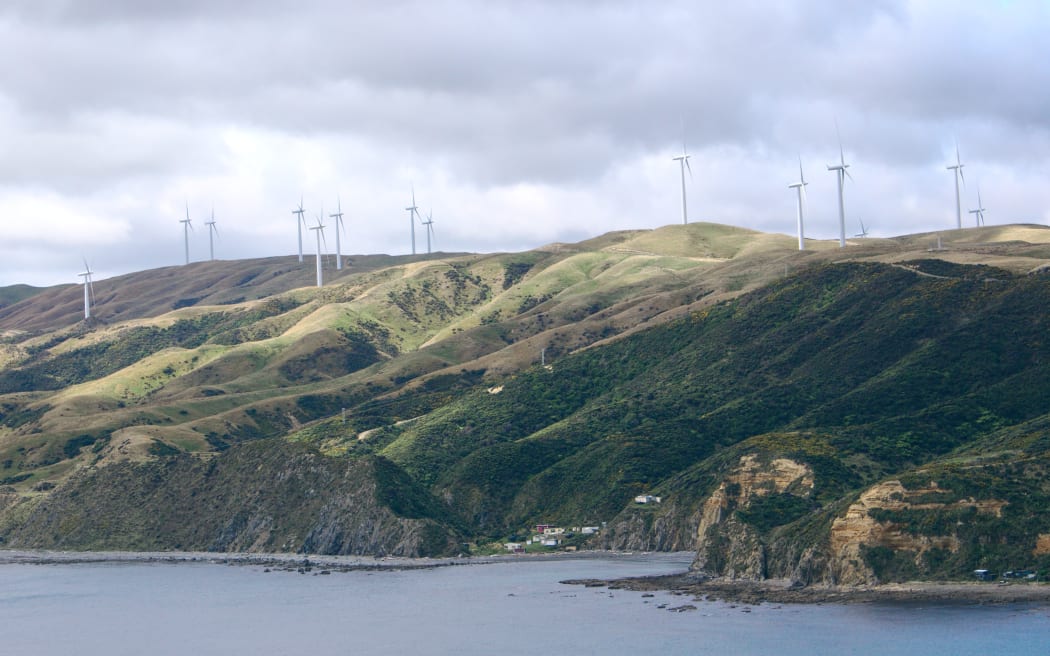
Wind turbines above the Wellington coastline at Makara Beach (file image). Fast-tracked consents would see further wind farms on both the North and South Islands. Photo: Unsplash / Nate Watson
Wind farm projects in Southland, south of Auckland and Manawatū are being fast-tracked through consenting, the government has announced.
Prime Minister Chris Hipkins announced the decision after the weekly Cabinet meeting on Monday.
"New Zealand's increasingly well positioned globally to harness wind power, onshore and offshore," he said. "When it comes to offshore generation for example our location in New Zealand matters. The least windy sites here in New Zealand are considered to have better wind energy potential than the windiest sites in Australia.
"We firmly believe New Zealand's energy future is a renewable energy future. This is the future and we can't afford any more backward-looking thinking that would keep us tied to the past."
The Southland Wind Farm proposed by Contact Energy would have 55 turbines at a site east of Wyndham; Waiuku Wind Farm would see 18 turbines set up on the southern Awhitu peninsula southwest of Auckland; and Te Rere Hau Wind Farm would see nine turbines installed at Aokautere, south east of Palmerston North.
The government said a further nine solar projects had been referred for fast-track consenting since 2020 and could add up to nearly 1.9 million solar panels.
Together, the solar and wind projects could add nearly four times as much generation as the Clyde Dam - New Zealand's third-largest hydroelectric plant - with the wind projects generating 300Mw, 80Mw and 39Mw at peak output respectively and the solar farms adding up to 1147Mw. Geothermal and hydrogen projects also referred for fast-tracking could add a further 64Mw.
The fast-tracking process will see the wind farms referred to consenting panels.
Hipkins said the projects would mean cheaper power prices for families for decades into the future.
"The more renewable we have, the more sustainable our electricity prices will be, the lower, ultimately in the long term, our electricity prices will be - but it's hard to pinpoint at a particular time what the impact of these projects will do."
He said the Clyde dam had taken over a decade to build and come online, and these projects could be operational much sooner.
In a statement, Energy Minister Megan Woods said the wind farms if consented could cut about 150 million kilograms of carbon emissions and create up to 840 construction jobs. Two of the solar projects - Rangiriri and Waerenga, referred in April - wouold displace about 220 million kilograms.
"It is vital we support this type of renewable energy development to help meet our national and international emissions reduction goals, decarbonise our economy, reduce costs to household and businesses and improve our national energy resilience."
Environment Minister David Parker said 15 of the 108 projects referred under the fast-track consenting process put in place during the Covid-19 response, which would be made permanent under the RMA replacement legislation.
"Fast track reduced consenting time by an average of 18 months per project, saving infrastructure builders time and money," he said. "These projects can proceed faster, provided they meet the normal environmental tests as determined by expert consenting panels."

